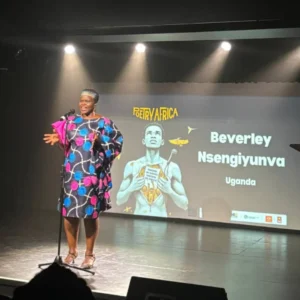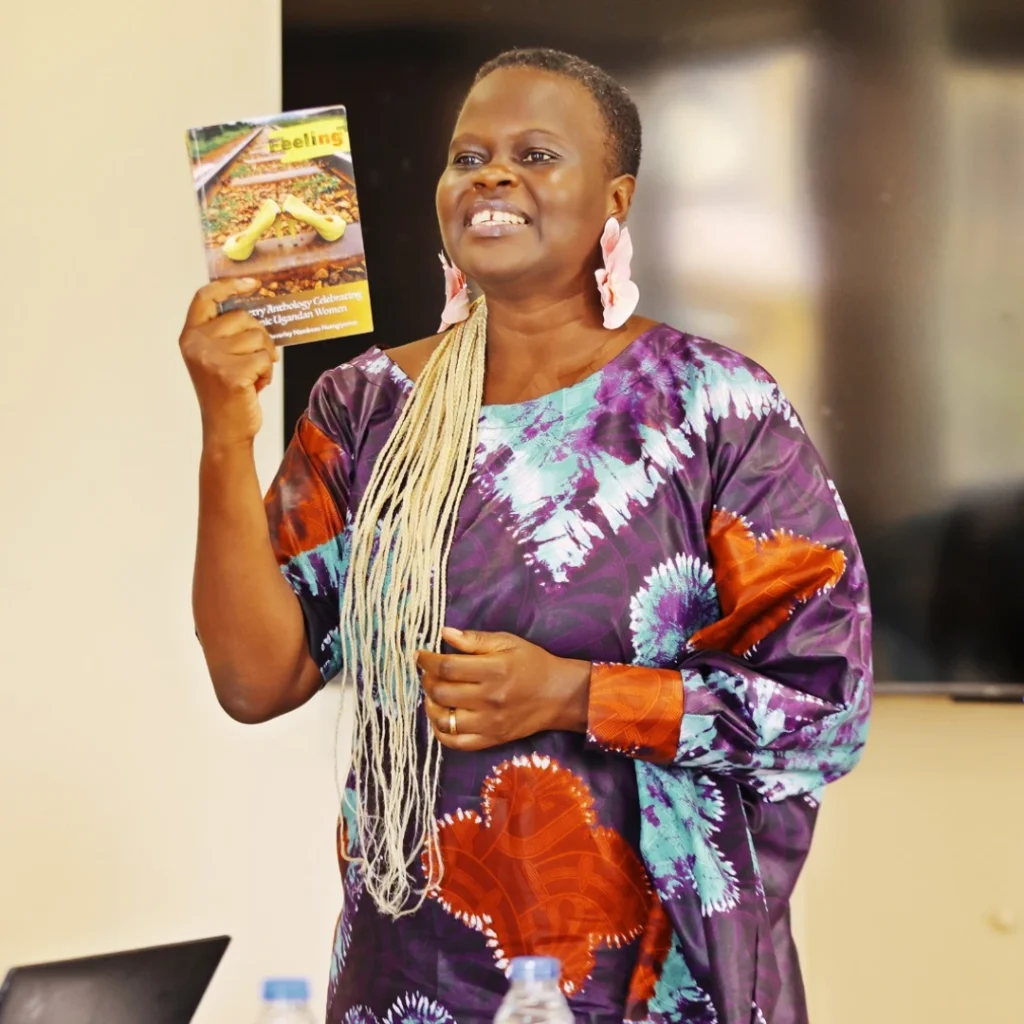
Since childhood, I have loved the musicality of words. I knew it set me apart, and it still does.
I’ve never been drawn to the activities many girls enjoy, like long conversations about hairstyles and makeup. Some can captivate others with this and even make a living from it, but not me. I was born with hair that grows effortlessly and skin that stays supple, even after a run.
God gave me these traits so I could focus inward, on poetry. Poetry isn’t just rhymes or pleasant-sounding lyrics; it’s expression. It’s joy, fear, helplessness, courage, openness, vulnerability, the future, the past, silence, noise, playfulness, and everything in between.
I’ve written, published, and performed in the name of poetry. Through the Babishai Niwe Poetry Foundation, I’ve supported hundreds of African poets with writing, publishing, and performance. I’ve worked with teams across the world, poring over dozens of poetry manuscripts, and yet I feel like I’ve only just begun. It’s an exciting time to be a poet.
Some of my favorite poetry collections include The Animals of My Earth School by Dr. Mildred Barya, Wheels by Prof. Kwame Dawes, Weeping by a River by Siphokazi Jonas, Teaching My Mother to Give Birth by Warsan Shire, and various collections by Emily Dickinson.
On my poetry journey, certain individuals have cleared paths for me, helping me thrive. As a writer, studying for my Master’s in Poetry at Lancaster University in England allowed me to focus intellectually. Prof. Graham Mort played a key role in that.
As an arts entrepreneur, Prof. Kwame Dawes, who runs the African Poetry Book Fund, has been a tremendous support to the Babishai Niwe Poetry Foundation through various collaborations. He makes every dream seem achievable.
Dr. Mildred Barya, both a dear friend and a writer whose work deeply inspires me, is one of a kind. I’ve also been fortunate to share conversations and admiration with poets like Ber Anena, Lillian Aujo, and, after participating in the Poetry Africa Festival in 2024, a dozen more poets from across the globe.
The invitation to the Poetry Africa Festival in Durban came when my poetry was seeking a home where it could flourish without censorship or reductionism.
There have been times when people introduced me in public, reducing my poetic journey to a narrow reflection of their own limited understanding. But in other places, both in Uganda and abroad, people mention my name with pride, as if a diamond gleams between their teeth. These people uplift me, showing the world my worth, and for that, I am deeply grateful.
I am especially thankful to Poetry Africa. The experience in Durban, in 2024, has been unmatched—the best yet. What a time to be a poet! As a public speaking trainer, I thrive on audience engagement, and my poetry performance is an extension of that. I love engaging with my audience, sharing a story, and having a dialogue. A touch of theater doesn’t hurt either.
The applause, the encouragement—I was home. Meeting exceptionally talented poets from around the world, hearing their stories in various languages, and being moved by their performances and publications—it all took me to places within myself that I didn’t know existed. There was a synergy that I know will lead to something new. I can feel it.
Two other Ugandans, Dr. Nick Makoha, who participated online from the UK, and spoken word artist Hawa Kimbugwe, with her pieces on the female experience, also contributed to the festival.
Being surrounded by such knowledge and the generosity of those willing to share insights on maintaining high standards as a poet, branding, marketing, and building a credible network was invaluable.
At the Grand Slam Competition finale, I was on the edge of my seat, witnessing one extraordinary talent after another. The winner, Olive Olusegun, performed with incredible intensity and imagination, while Masai Sepuru, who took second place, shared deeply vulnerable poetry about men, choices, and prejudices. It was a night like no other in the world of poetry.
I’m profoundly grateful to Siphindile Hlongwa and Quaz Roodt, the co-curators who managed the Johannesburg and Durban segments of the festival with such care. The Center of Creative Arts at Kwa-Zulu Natal University, along with the entire organizing team, supporters, and friends, made it all possible.

